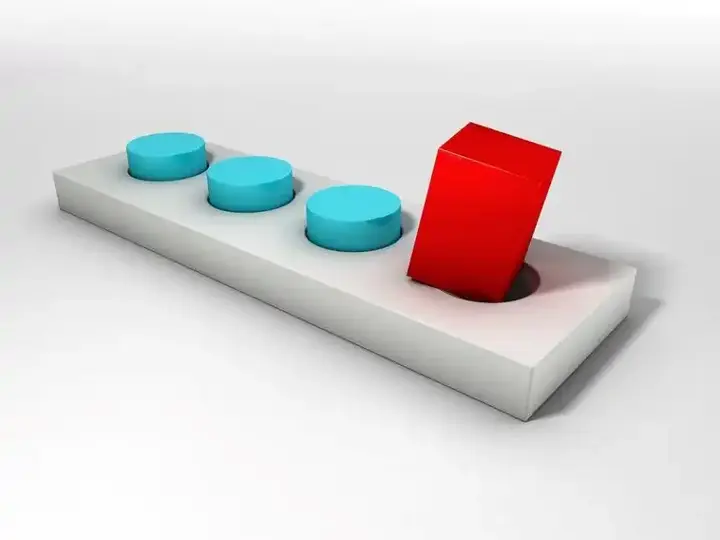Can you really master a skill by learning for one hour a day?
The traditional learning model we grew up with can be toxic to real-life learning. Hard tests, literal grades - those things translate terribly outside of school. We've been adapted to have an all-or-nothing mentality about becoming good at something. However, self-directed learning – and most learning in life really – defies scale A to F. It doesn't matter how hard you try it doesn't fit into that round hole! Being an academic made me accustomed to shorter time frames, such as a 12-week semester. I always longed for rapid progress and objective measures (specifically A). Learning Spanish in my room, using a large, worn out textbook and a variety of random resources, is not up to par. Progress sometimes seems too slow.
Recommend
Don't I need 10,000 hours?

The 10,000-hour rule indicates that to become an expert in a skill, you'll need 10,000 hours of deliberate training. Let's do some math. Let's say you learn the subject of your interest for one hour every day, without any days off, throughout the year.
10,000 ÷ (365 × 1) = 27.4
It takes more than 25 years to become a true expert, but is the 10,000-hour rule a myth or not? Some subsequent articles and research suggest otherwise. I like the idea of consistent and focused practice suggested by the 10,000-hour rule. Other than that, I chose to ignore it because it makes me feel anxious. So what if this is true? Am I trying to be a world-class violinist or as famous as The Beatles? Wouldn't I be satisfied if I got better at something every day, even if it's only 0.001% better? Maybe you're learning new skills for promotion or career change. This is amazing, and what you need to motivate you is a calming mindset. Make yourself look at the changes that happen on the nanoscale every day.
Tell yourself these things if you only have one hour to learn each day

. You're creating exciting connections, for one hour at a time.
The primary unit of the brain is the neuron. You can think of this as a tree with a root and small branches. As you learn, these neurons find each other and form networks When they start learning something new, different neurons begin to find each other. With a consistent learning routine, for one hour each day, the connections between different neurons become stronger. The more knowledge and practice are restored, the more these links are strengthened. What's more – the effects increase when you're able to apply skills and knowledge in more challenging real-world contexts. In essence, you're renewing your brain's wires and taking advantage of your brain's enormous information storage capacity (about 2.5 million gigabytes). As you learn new things, the changes that occur in your brain are similar to what you see with physical exercise or taking antidepressants.
2. Become a teacher, starting from the second day.
You don't need to be an expert to start teaching others. The truth is that you just need to be one step ahead to show someone else the way. When you share knowledge with others, you strengthen your understanding. This is known as the Protégé effect. After you spend one day learning a subject/skill, you're ready. Start small, with the people you talk to every day. Let's say you're learning the guitar. Start a conversation with your friend about your finger nails. She then explains why your index finger, middle finger and ring finger look redder than the other fingers – you've been practicing the D-tendon. To play this, you can use the index finger and middle finger on the second fret and the ring finger on the third fret. I formed a mental image there with this miniature guitar lesson. Your friend may forget it, but he's there to help you remember the next time. By learning the language, you can offer to teach your roommate or family members how to pronounce simple everyday phrases as they are learned. Teaching is the transfer of knowledge and can happen in any form. Sometimes, informal teaching helps us remember better.
3. Time is basically an elastic band.
We waste a lot of time wishing we had more time. It's ridiculous. We always believe that we can incorporate learning into our schedules if life is a little less busy. The not so much fun truth is that this is a lie, unfortunately. Have you ever woken up on a quiet Saturday morning, eager to check out the only item left from your to-do list to end up working on that one thing all day? How does that happen when it should have only taken an hour and a half? Scheduling your learning hour at a specific time each day will significantly reduce the time required for other tasks. Give yourself deadlines for other responsibilities. Plan to leave the office at a specific time each day so you can go to bed early and study the next morning. This helps you get things done faster at work. Set a time limit for grocery purchases, cooking, and cleaning.
Somehow, when you get close to the time limit, every atom of your being goes above and beyond to help you not exceed it. Treat time like an elastic band. The tasks that need to be completed will be adjusted, depending on the length of time allotted (short) or extended (long).
![]()
Princess Tower... The second tallest skyscraper in Dubai
Princess Tower in Dubai Marina stands out with its luxurious design, 101 floors, and stunning views. Once the tallest residential building in the world, it offers elegant apartments, top-notch amenities, and a prime location near shops and transport, making it a dream home and a solid investment. more- ADVERTISEMENT
![]()
Illuminating the Cosmos: The Spectacular Light Shows of Stellar Explosions
Stellar explosions paint the sky with mesmerizing light and immense energy, marking the dramatic end of stars. These cosmic events not only create heavy elements like gold and iron but also reveal secrets about the universe's formation. Gamma rays from these bursts shine with deadly intensity and deep mystery. more- ADVERTISEMENT
![]()
Nemo Point: the most isolated location on the planet
Point Nemo, the ocean’s most remote spot, lies in the South Pacific, 2,700 km from any land. It’s so isolated that astronauts are often the closest humans. Known as a spacecraft graveyard, it’s also inspired fiction from Jules Verne to Gorillaz’s Plastic Beach album. more- ADVERTISEMENT
![]()
Why do people buy? Simplifying the theory of purchase
Understanding why people buy is key in commerce—whether it's to meet basic needs, fulfill desires, or express identity. Buying behavior is shaped by psychological, social, economic, and marketing factors, and recognizing these helps create better marketing strategies that truly connect with consumers. more- ADVERTISEMENT
![]()
Unexplained phenomena - a list that drives you crazy!
Marfa lights, glowing mysteriously in Texas deserts, and intricate crop circles bent into fields with no clear cause, both baffle scientists and spark theories from the natural to the supernatural. The Bermuda Triangle, too, remains a hotspot of intrigue, with ships and planes vanishing, leaving only questions and fascination behind. more- ADVERTISEMENT
![]()
Getting to rock bottom: what it means and where to go from here
Hitting Rock Bottom: What It Means and Where to Go from Here more- ADVERTISEMENT
![]()
75% of the global diet is produced by just 12 plants and 5 different animals
Our diets rely on just a few crops, making them fragile and less nutritious. Embracing lesser-known, diverse foods like millet and winged beans can boost health, support farmers, and protect against climate and crop threats. more- ADVERTISEMENT
![]()
Rare but deadly natural phenomena: a fascinating look at the extraordinary forces of the Earth
Nature stuns with rare spectacles like ghost apples clinging to branches, red rain falling mysteriously in India, and jellyfish lightning flashing above storms. From Venezuela’s eternal lightning storms to Australia’s rolling morning glory clouds, these phenomena showcase Earth’s strange, powerful beauty—and remind us how little we really know. more- ADVERTISEMENT
![]()
Success Guide - How to learn the skill of planning?
Success Guide - How to learn the skill of planning? more- ADVERTISEMENT
![]()
A book that may interest you - Influence: The Psychology of Persuasion
A book that might interest you - Influence_ The Psychology of Persuasion more- ADVERTISEMENT





















